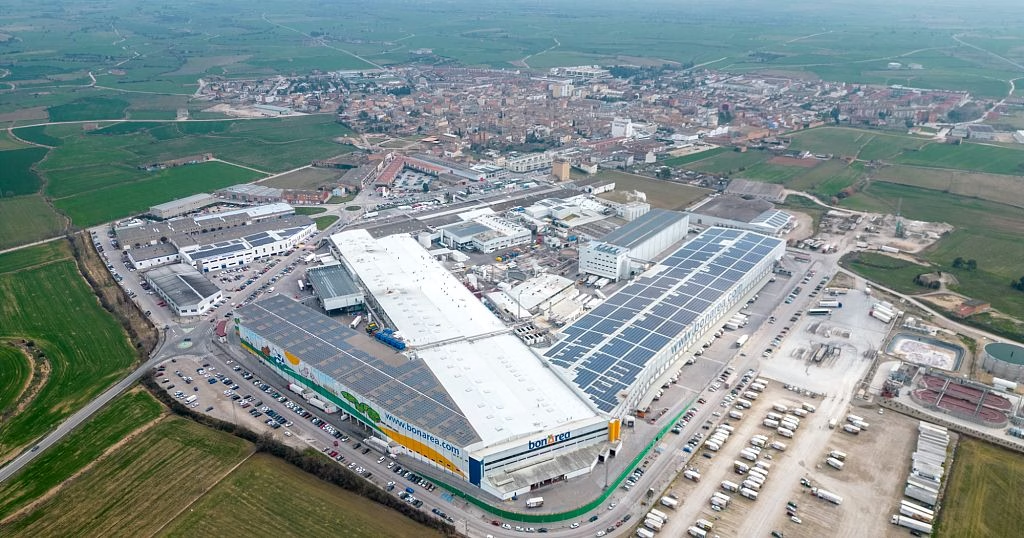Inside a large production facility in north-eastern Spain, employees from 62 different nations work together to keep the BonÀrea food company thriving, among millions of Spanish ham legs moving along spinning hooks and conveyor belts. The workforce consists of mainly Ukrainian, Romanian, Bulgarian, Moroccan, and Senegalese individuals. BonÀrea heavily relies on foreign labor, with 40% of its 5,000 employees being foreign-born. However, this formula for success has been successfully implemented across various businesses in Spain, making the country the envy of the industrialized world. According to the Organization for Economic Co-operation and Development, Spain’s economy was projected to grow by 3% last year, surpassing the Euro zone average of a meager 0.8%. This growth even surpasses the United States’ growth rate of 2.8%. While Donald Trump vows to close borders and expel millions of foreigners, Spain’s government, business owners, and economists agree that migrant workers are crucial to the country’s success.
Practically all of Spain’s population growth since the COVID-19 pandemic can be attributed to immigration, with 1.1 million people arriving in 2022, according to the Bank of Spain. The newcomers are credited with sustaining the social security system of an aging Spain. The central bank states that 85% of the 433,000 individuals who found employment between January and September last year were foreign-born. Additionally, 70% of working-age foreigners were employed in Spain in 2022, compared to 56% of native Spaniards.
Spain’s economic success is in stark contrast to the growing trend among wealthy nations of tightening borders and adopting anti-migrant rhetoric. Across Europe, the rise of far-right political parties has been fueled by anti-migrant sentiment. In Austria and Germany, far-right parties have shown significant gains in recent elections. France’s National Rally is also optimistic about its chances of gaining power. Spain, too, has witnessed the emergence of far-right, anti-migrant political forces, which focus on unauthorized migration from Africa and Islamic countries.
Mohamed Es-Saile, a 38-year-old who entered Spain unlawfully at the age of 16, has built a life for himself as an electrician and repairman at BonÀrea. He acknowledges the fear of Islam that drives part of Europe’s migration backlash, although he personally has not experienced it in Guissona. Latin American migrants have constituted the majority of recent arrivals in Spain, with over 4 million Latin American immigrants currently residing in the country.
Victor Razuri, a 41-year-old Peruvian brought over by BonÀrea last year, has found it easy to adapt to his new country and the small village of Guissona in rural Catalonia. Despite the challenges of unauthorized migration across the Mediterranean Sea, Spain, under Socialist Prime Minister Pedro Sánchez, has no plans to halt the influx of authorized foreigners. Sánchez has defended legal migration due to its economic benefits. According to the National Statistics Institute, Spain has welcomed nearly 318,000 authorized immigrants between January and October 2024. Around half a million new foreign-born workers have filled 45% of all new jobs created since 2022.
Foreigners now make up nearly three million individuals or 13% of the entire workforce in Spain. They predominantly work in service jobs, construction, farming, fishing, and home care and cleaning. An aging Spanish population requires workers, and the Bank of Spain estimates that the country will need 30 million working-age immigrants over the next three decades to maintain the current balance between workers and retirees-plus-children.
While political rhetoric internationally continues to turn against migration, Sánchez has been proactive in addressing the issue. He recently visited Mauritania, Senegal, and Gambia to promote a temporary work scheme that would provide legal
Source: http://www.africanews.com/2025/03/01/spains-economy-thrives-in-2024-due-to-foreign-workers/







